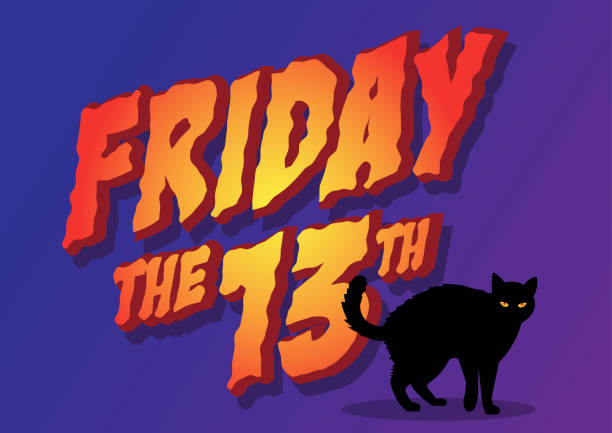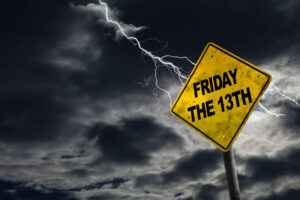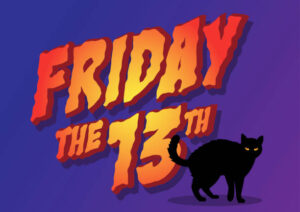
Friday the 13th
Friday the 13th has long been shrouded in superstition and fear. This date evokes anxiety and caution for many, even those who consider themselves rational.
The combination of Friday and the number 13 has been believed to carry an ominous meaning across cultures. Various narratives surround this date, and they contribute to its eerie reputation. This blog will explore the superstitions linked to Friday the 13th and its ties to the iconic movie franchise.

The Origins of Friday the 13th
The Friday the 13th meaning has roots in various historical and cultural contexts. The number 13 has been associated with bad luck for centuries. Many attribute this superstition to the Last Supper, where Judas Iscariot, the betrayer of Jesus, was the 13th guest.
Additionally, people have viewed Friday as an unlucky day ever since the Middle Ages. Some argue that it was the day of Christ’s crucifixion. Together, these beliefs form a potent combination. Thus, Friday the 13th emerges as a day steeped in negativity.
Why Is 13 Unlucky?
The question of why 13 is unlucky continues to perplex many. Various cultures have their own interpretations of this belief. In some traditions, the number 12 symbolizes completeness, such as 12 months in a year or 12 zodiac signs. The number 13, then, represents disorder and imbalance.
In numerology, 13 is often linked to transformation and upheaval. This adds to the unease surrounding the number. Many buildings skip the 13th floor, and many avoid having 13 guests at a dinner. Such actions demonstrate the widespread belief in the unluckiness of 13.
The Fear Surrounding Friday the 13th
What makes this date so feared? Even the most skeptical individuals find themselves feeling uneasy on this date. A mix of cultural conditioning and psychological factors contributes to this fear. The anticipation of something bad happening can create a self-fulfilling prophecy.
On this date, people often exercise extra caution. They might avoid making significant decisions or embarking on new ventures. Some even refrain from traveling. Such behaviors reflect how deeply ingrained the fear of this day has become in our collective psyche.
The Impact of the Friday the 13th Movie Franchise
The Friday the 13th movie series has played a crucial role in cementing the date’s fearful reputation. Specifically, the original film was released in 1980 and introduced audiences to the infamous character Jason Voorhees. This horror icon became synonymous with terror and chaos.
The film’s plot revolves around a group of teenagers who encounter Jason at a summer camp. The terrifying events unfold on the dreaded date. This connection reinforces the already established fears surrounding the date. The franchise spawned numerous sequels, further embedding the Friday the 13th name into pop culture.
What Happens on the Date in the Movies?
In the Friday the 13th movies, a series of gruesome murders occur. Jason, often masked and wielding a machete, stalks his victims relentlessly. The films depict a classic horror narrative where fear escalates. Audiences are left on the edge of their seats, often associating the date with danger.
As the franchise evolved, the character of Jason became an enduring symbol of horror. The movies explore themes of survival, revenge, and the consequences of one’s actions. The more these films resonated with audiences, the more they contributed to the overall fear associated with the date.
The Cultural Impact of Friday the 13th
Beyond the films, the date has permeated popular culture in various ways. The date has inspired songs, books, and other films, all playing on the fear and superstition surrounding it. The phrase “Friday the 13th” has become synonymous with bad luck, evoking a sense of dread.
Many people even celebrate this day in quirky ways. Superstitions can lead to fascinating traditions. Some individuals host “unlucky” parties, embracing the day rather than fearing it. This cultural duality highlights how deeply the Friday the 13th narrative has penetrated our lives.

Closing Remarks
In conclusion, Friday the 13th holds a significant place in our collective consciousness. The blend of superstition and horror has created a potent narrative around this date. The question of what happens on Friday the 13th continues to elicit fascination and fear.
The Friday the 13th movie franchise has contributed significantly to this phenomenon. It has cemented the date’s reputation as a harbinger of chaos and danger. As we approach each Friday the 13th, the air thickens with anticipation and anxiety. Regardless of one’s beliefs, the fear and intrigue surrounding this date endure. Whether one views the day as unlucky or a source of entertainment, its impact remains undeniable. The date invites contemplation and conversation about superstition, fear, and culture.





